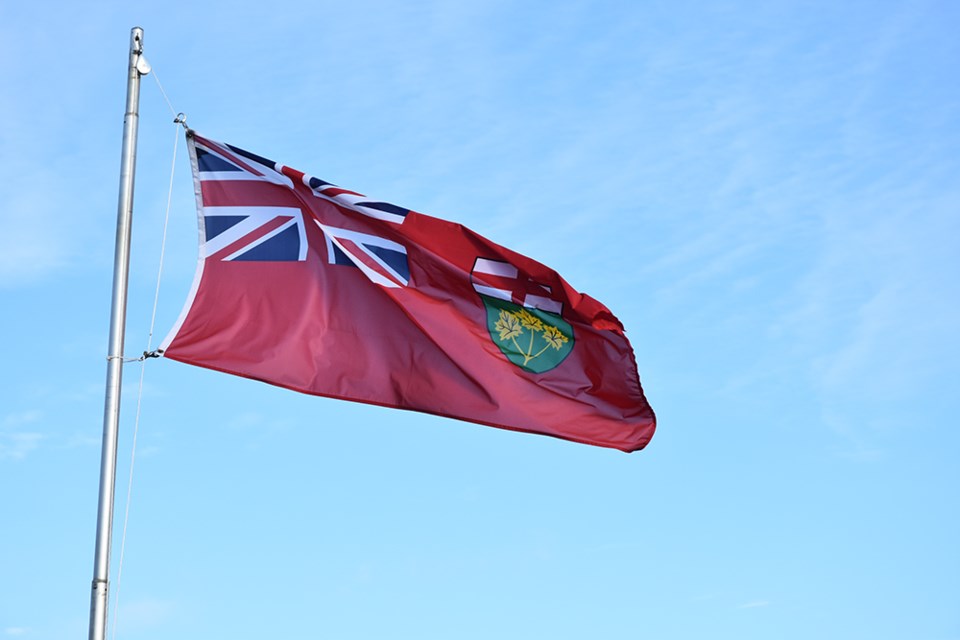TORONTO — Ontario will push back the return to school to next Wednesday, a senior government source said Thursday as the province set another record for new daily COVID-19 infections.
Classes were set to resume as early as Monday in much of the province, but critics called for clarity on the back-to-school plan in light of the recent spike in COVID-19 cases.
The source said the extra two days are to give schools time to prepare, adding the province will deploy 3,000 more HEPA filter units to school boards in addition the 70,000 it has already rolled out, and will also provide N95 masks to staff.
The source, who was not authorized to speak publicly ahead of an afternoon announcement on the issue, also said the province would further restrict capacity in large indoor venues starting Friday. Concert venues, arenas and theatres are currently limited to 50 per cent capacity, but the source said there will also be a hard cap of 1,000 spectators for larger venues.
The source said the changes were approved by cabinet Thursday morning and will be officially announced by Ontario's chief medical officer of health in the afternoon.
There will be several short-term measures implemented at schools, such as virtual-only school-wide assemblies and more cohorting at lunch and recess for elementary students, the source said.
Ontario is the latest province to announce changes to the start of school due to the fast-spreading Omicron variant. Some provinces have decided to prolong the winter break for some or all students, while others have opted to switch to virtual learning starting next week.
The news comes as the province has set several records for daily COVID-19 infections in quick succession, with the latest peak — 13,807 new infections — reported Thursday.
On Thursday, 965 people were hospitalized with COVID-19, including 200 people in intensive care, Health Minister Christine Elliott said. The seven-day average of COVID-19 related patients in ICU is now 179, she said.
"Data is being updated to distinguish patients in hospital/ICU for COVID-19 from those admitted for other reasons but test positive," Elliott added.
The province also recorded eight new deaths due to COVID-19.
A new study by Public Health Ontario on recent COVID-19 cases suggests the Omicron variant is less likely to cause hospitalization or death than the Delta variant, but could still significantly impact health-care systems due to its high transmissibility.
The agency identified 6,314 Omicron cases that saw symptoms emerge between Nov. 22 and Dec. 17, and matched them with Delta cases based on age, gender and onset date.
It found that after adjusting for vaccination status and region, the risk of hospitalization or death was 54 per cent lower in Omicron cases than Delta cases.
"Omicron appears to be the first dominant variant to demonstrate a decline in disease severity," the study said.
"While severity may be reduced, due to the transmissibility of Omicron, the absolute number of hospitalizations and impact on the healthcare system is likely to be significant."
Even as daily case counts increase, health experts have said that the actual number may be much higher than reported because of holidays, and with hospitals and testing centres under strain.
At least one public health unit in the Toronto area has asked residents to fill out a survey if they test positive on a rapid antigen test. York Region Public Health said the move would ensure it can have "the information needed to respond to the pandemic" and better understand the use of rapid tests in the region.
The public health unit also told those residents to self-isolate immediately and consider themselves to have COVID-19 due to backlogs for PCR tests.
In Ottawa, public health officials said the increase of COVID-19 cases and contacts has "exceeded the capacity of testing and case management operations."
They advised residents who test positive on a rapid antigen test to self-isolate for at least 10 days and until symptoms resolve, but said not to report their rapid test results to Ottawa Public Health.
In northwestern Ontario, a First Nation has declared an emergency and issued a call for support as it faces a COVID-19 outbreak.
Officials in Bearskin Lake First Nation, located roughly 425 kilometres north of Sioux Lookout., Ont., said there are 26 positive COVID-19 cases within the community, which has an on-reserve population of less than 400 people.
"We are requesting extra nursing support, support for wood cutting operations as members are running low on wood, support for delivering food to those isolating and community security," the First Nation said in a notice declaring the emergency.
New rules also took effect Thursday at long-term care homes in the province, putting a pause on access to long-term care homes by general visitors and day absences for all residents for social purposes.
Designated caregivers, however, may continue to enter long-term care homes.
This report by The Canadian Press was first published Dec. 30, 2021.
——— This story was produced with the financial assistance of the Facebook and Canadian Press News Fellowship.
Liam Casey and Noushin Ziafati, The Canadian Press
Note to readers: This is a corrected story. A previous version had the incorrect number of new deaths from COVID-19.



